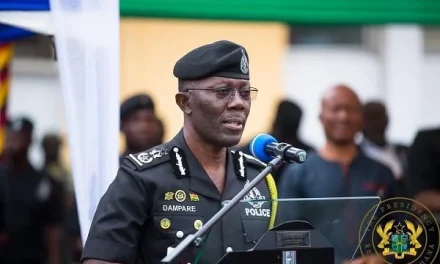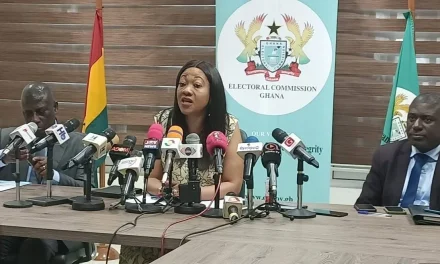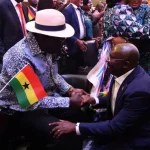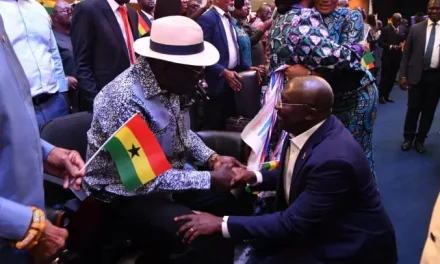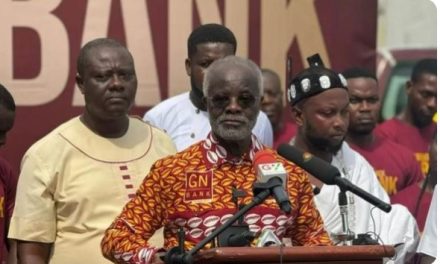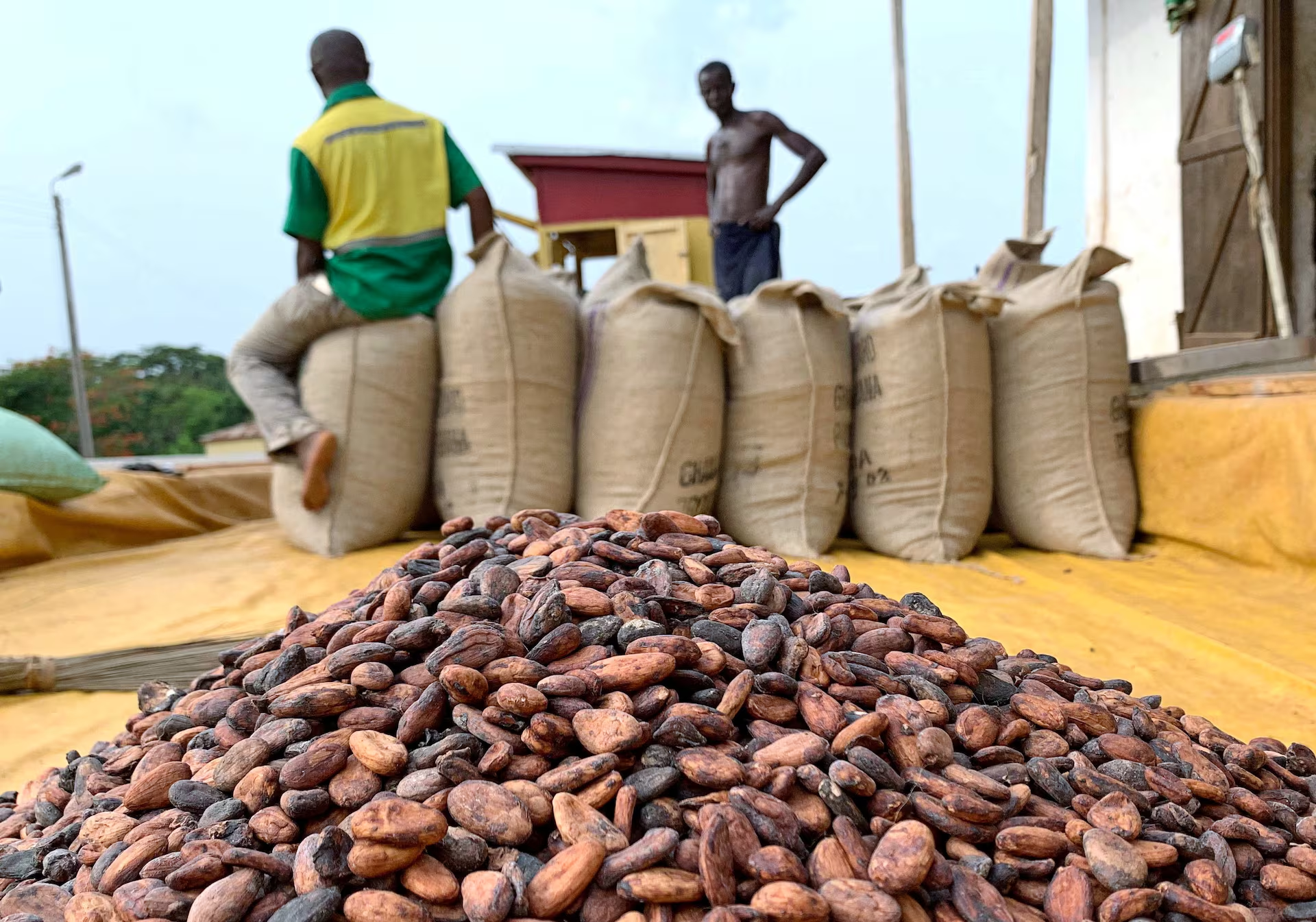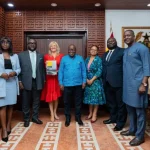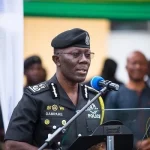
Prof. Adei to Akufo-Addo: Declare a national emergency on Galamsey
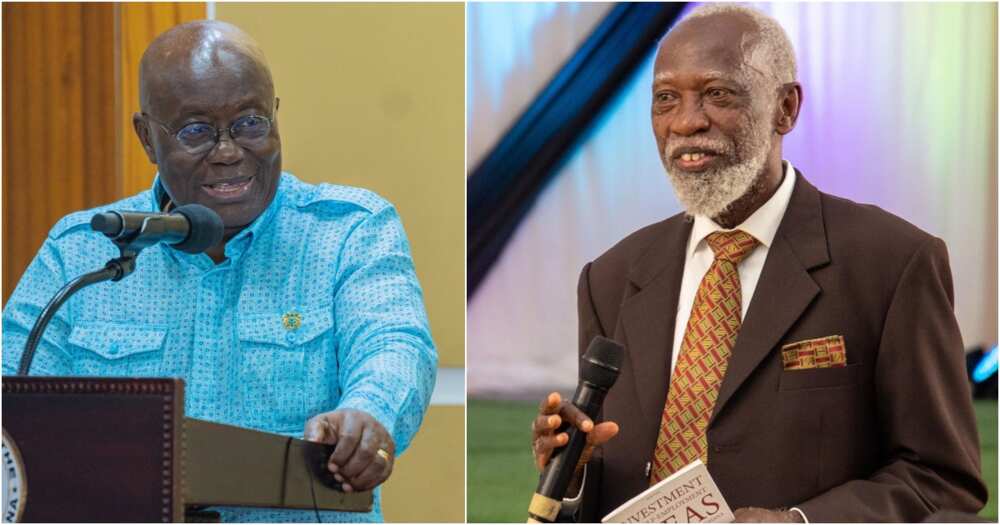

President Nana Akufo-Addo has received calls from Professor Stephen Adei, a former chairman of the National Development Planning Commission (NDPC), to declare a national emergency over unlawful mining, or “galamsey.”
He claimed that doing so would grant the President emergency powers to address the threat, characterising it as a “gargantuan environmental degradation” problem.
He declared, “Galamsey is a major reflection of this country’s failure in traditional, political, and security leadership.”
On Wednesday, September 4, 2024, in Accra, Prof. Adei was the guest speaker at the Driver and Vehicle Licensing Authority (DVLA) 25th anniversary lecture.
Total destruction
Prof Adei, who is also a former Rector of the Ghana Institute of Management and Public Administration (GIMPA), said galamsey and its incidental destruction of forests, farmlands, water bodies and other natural resources, had become widespread, throwing people’s health and the future of this country into jeopardy.
He gave an example of how galamsey had totally destroyed River Gimi, the major source of water for Obuasi and other surrounding communities.
“Currently, River Gimi that supplies water to Obuasi is being totally destroyed at its headwaters just a few meters from the Adansihene’s residence in Hwiremoase,” he added.
Prof Adei lauded the Asantehene, Otumfuo Osei Tutu II, for his decisive action in destooling chiefs found to be complicit in galamsey activities.
“I hope the Asantehene in his sterling leadership will not stop at destooling chiefs found to be engaging or supporting galamsey. He must continue and eventually declare Asanteman galamsey free zone,” he added.
Emergency powers
If President Akufo-Addo was to heed the call by Prof Adei and declare galamsey as a national emergency, then it means the President could take actions to deal with the menace just as he did during the fight against the COVID -19 pandemic.
During the COVID -19 pandemic, the President under emergency powers, restricted the movement of people, shut down certain public spaces such as beaches and restricted public gatherings at funerals, religious activities and parties.
It is not clear what actions the President could take if he declared a national emergency on galamsey, but Article 31 of the 1992 Constitution, allows the President, acting on the advise of the Council of State, to declare a state of emergency in any part of the country.
The President could therefore declare a state of emergency in the galamsey prone areas and take far reaching actions which could directly or indirectly affect the human rights of persons, but would become necessary in dealing with such a national disaster.
Article 31 of the Constitution requires the President to immediately notify Parliament and seek Parliamentary approval for the state of emergency, with Parliament required to either approve the state of emergency or revoke it within 72 hours after being notified.
Comprehensive action
Prof Adei said after declaring a state of emergency to deal with the menace, the government should ensure those sponsoring or funding galamsey activities would face the full rigor of the law.
Again, he said, there ought to be a comprehensive which will provide alternative livelihoods for unemployed youth engaged in galamsey, or allow them to mine in tandem with the law.
“The young men and women caught in galamsey must be encouraged and trained. Of course, they can go back and engage in lawful mining, but the mining should not be at the expense of the environment,” he said.
Galamsey fight
The issue of galamsey has become a national public disaster, leading to the destruction of water bodies, forests and farmlands.
Successive governments have failed to deal with the menace
When President Akufo-Addo assumed the reigns of governance in 2017, he served notice that he was prepared to put his Presidency on the line in his avowed quest to fight illegal mining.
With that statement and a charge to deal with galamsey, the government implemented a flurry of initiatives to deal with the menace.
Among them was the passage of the Mining (Amendment) Act, 2019 (Act 995), which imposed a strict sentencing regime for offenders of galamsey.
Under Section 99 of Act 995, a Ghanaian engaged in illegal mining, or one who commands, instigates or employs others to engage in illegal mining commits an offence and is liable, upon summary conviction, to a fine of not less than 10,000 penalty units (GH¢120,000) and not more than 15,000 penalty units (GH¢180,000) and to a term of imprisonment of not less than 15 years and not more than 25 years.
For a foreigner engaged in illegal mining, Act 995 stipulates a fine of not less than 100,000 penalty units (GH¢1.2 million) and not more than 300,000 penalty units (GH¢3.6 million) and a term of imprisonment of not less 20 years and not more than 25 years, or both the fine and the term of imprisonment.
The government also established an Inter-Ministerial Committee on illegal Mining and came up with Operation Vanguard, a security task force to deal with the menace.
Failures?
However, seven years down the line, it seems the plans by the government had failed to have the desired effect, with galamsey activities on the rampant.
There has been accusation of corruption in the fight, and politically exposed persons being involved in galamsey activities, with many civil society organisations accusing the government failing to deal the menace.
With about three months to the general elections, the issue of galamsey has become a political talking point and a campaign issue, with the two major political parties engaging in the usual blame game politics.
However, while this political spectacle continues, the country continues to suffer the brunt of the effect of illegal mining.
Recently, the Ghana Cocoa Board (COCOBOD) attributed galamsey as part of the reasons for low cocoa yields, while the Ghana Water Company has also made public how the destruction of water bodies, as a result of galamsey activities, was making it difficult for it to supply the public with water.

